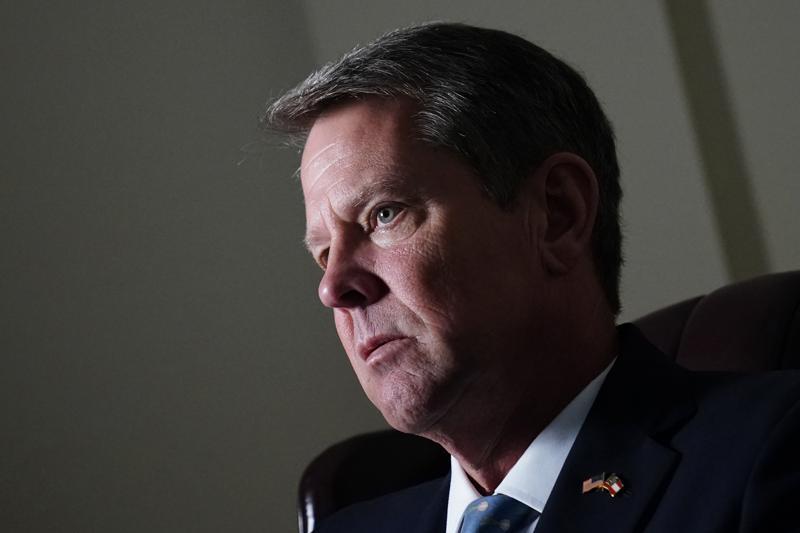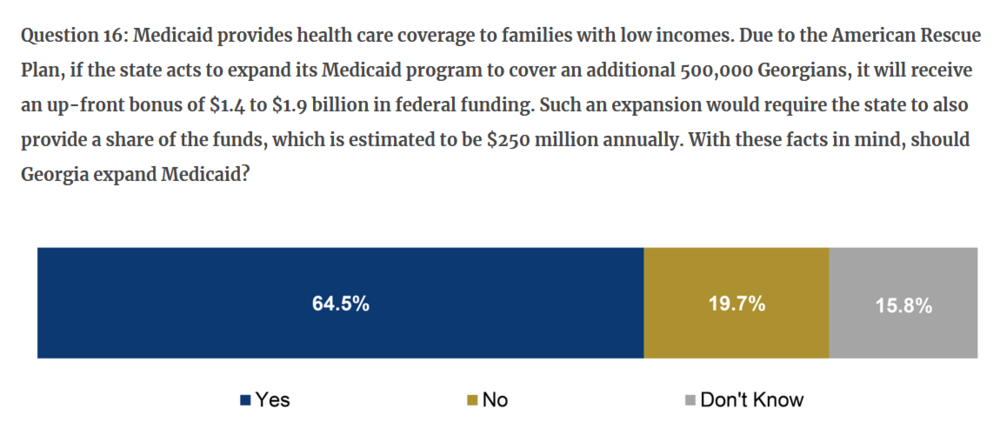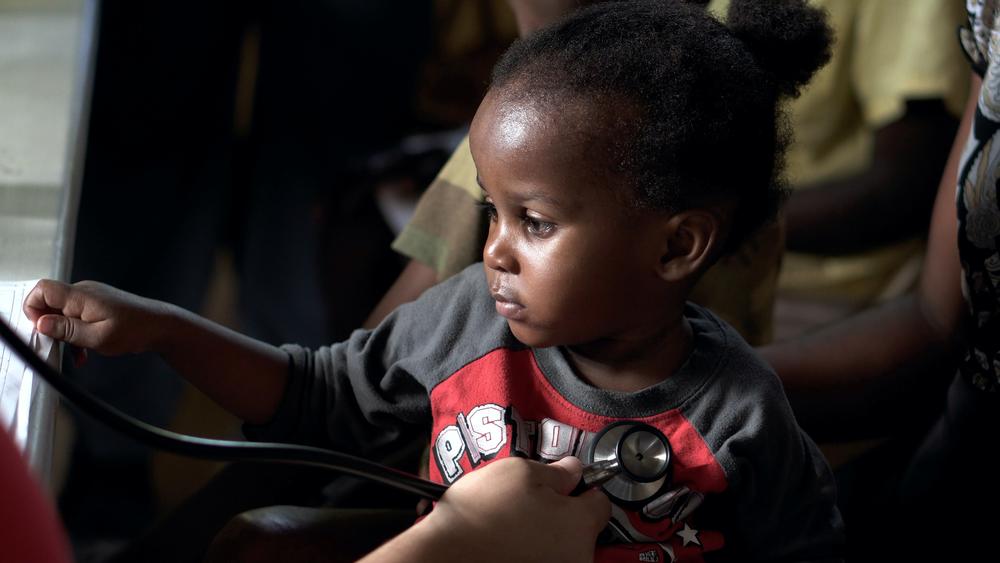
Caption
In this July 7, 2021, photo Georgia Gov. Brian Kemp speaks during an interview at his campaign office in Atlanta.
Credit: (AP Photo/John Bazemore)
A new poll looks at how people in Georgia want to see the state spend its $4.9 billion from the American Rescue Plan. GPB’s Ellen Eldridge reports on the findings of the Georgia Budget and Policy Institute.

In this July 7, 2021, photo Georgia Gov. Brian Kemp speaks during an interview at his campaign office in Atlanta.
Gov. Brian Kemp in June appointed three committees to evaluate proposals and recommend how best to use funds from the American Rescue Plan. While the committees focused on water and sewer infrastructure, broadband infrastructure and the economic impact of COVID-19, a recent poll shows Georgians want lawmakers to consider issues of health care and education.
The University of Georgia’s School of Public Affairs Survey Research Center conducted the poll, and the Georgia Budget and Policy Center analyzed and released its findings this week.
The state expects to receive about $4.7 billion in flexible federal aid, which could help offset some of the $1.2 billion in budget cuts from the state’s education system, GBPI Senior Policy Analyst Danny Kanso said.
The president's American Rescue Plan includes another $500 million in direct aid to Georgia cities and counties, and $300 million in infrastructure funding.
"Georgians want us to use the funding we have available to support policies that will jump-start our recovery and advance prosperity well into the future," Kanso said. "That means additional funding for K-12 schools, students living in poverty, financial aid to college students who can't afford tuition, Medicaid expansion, direct payments to those who need it most, and, as we look forward, new revenues to continue to sustain those investments in the future."

Georgia is one of 12 states that has so far not expanded Medicaid, and the state had the third highest uninsured population prior to the pandemic.
Medicaid expansion alone would cover nearly 500,000 Georgians and create tens of thousands of jobs, Kanso said.
"Our state could receive between $1.4 and $1.9 billion in additional incentives up front for expanding Medicaid," he said. "That funding would more than cover the cost of expansion, leaving extra funding available to address core needs in our health care system and to make long overdue investments."
But Medicaid expansion in Georgia is unlikely, as Republican state officials and lawmakers have refused to take the option under the Affordable Care Act to expand insurance for adults living in poverty. Kemp has instead offered his own partial expansion plan to the federal government, which is under review by the Department of Health and Human Services.
The Biden administration has already rejected aspects of the proposal, suggesting that the plan will not get federal approval.
GBPI believes that providing a pathway to better health care coverage would not only help with health care access generally but also address the racial disparities exposed and exacerbated by the pandemic.

"We know in the coverage gap, looking at that population in Georgia, about 36% of the people in the coverage gap in Georgia are Black, 22% are Latinx," Laura Harker said when the American Rescue Plan was proposed. "So about 60% of people in the coverage gap are people of color. That's a huge disparity that expanding Medicaid would help to increase access for people of color in our state."
REPORT: Lack Of Affordable, Accessible Health Care Puts Georgians At Risk
The poll shows Georgians overwhelmingly expressed a need for real and, more importantly, targeted relief that goes to those who need it most, Kanso said. That means using relief funding to invest in the core areas of health care, education and additional direct economic support as well as restoring budget cuts.
While the American Rescue Plan provides an unprecedented opportunity for the state, federal funding alone will not sustain a lasting recovery, Kanso said.
He suggested looking at new sources of revenue such as the tobacco tax, and trimming back special interest tax breaks such as the film tax credit.
"We can keep those revenues and use those for what is needed most across our state," he said.
Part of funding education is investing in school transportation, for which funding levels have fallen from about 50% to 20%, GBPI Director of Strategic Communications Caitlin Highland said.
"And particularly when school districts are underfunded anyways, particularly when there are additional challenges being placed on these schools," Highland said. "We think that that is a missed opportunity to support our local schools, and, clearly, Georgians here agree because over 66% of people support or somewhat support this as well."